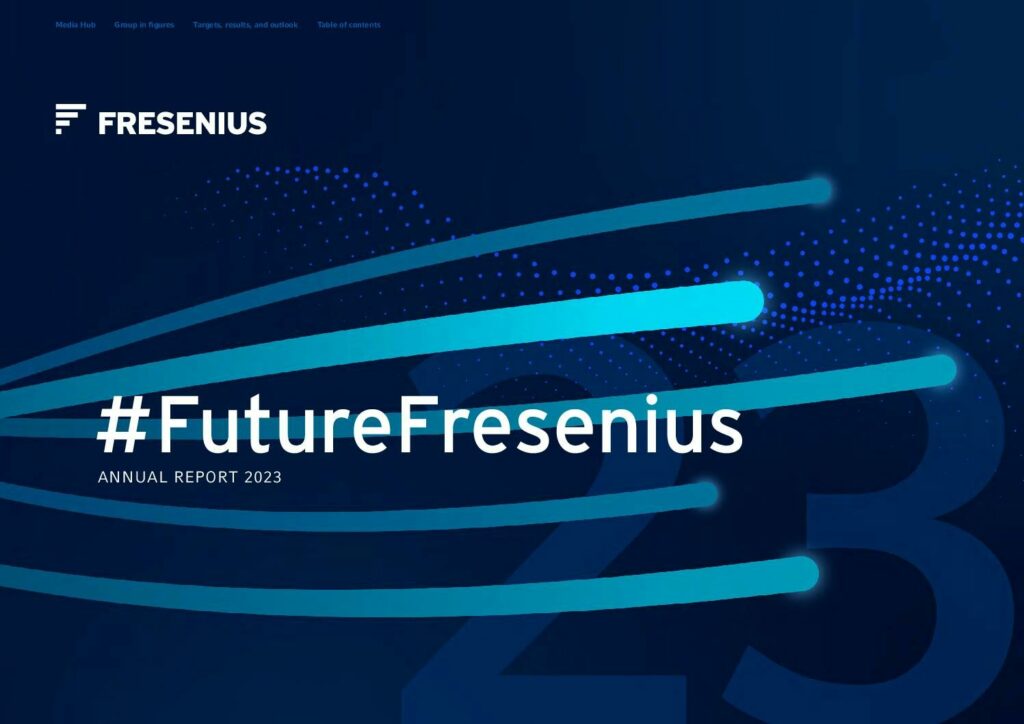In order to meet our future demand for qualified specialists, we use a variety of different tools to recruit staff. We monitor our working environment and competitive surroundings closely to identify potential. Furthermore, we use digital personnel marketing, organize our own recruitment events, and present the company at career fairs. In recent years, we have significantly broadened our range of personnel marketing activities. We also want to be perceived as a reliable employer that values integrity. Further information is provided in the Compliance section.
Temporary workers are deployed in the business segments to compensate for short-term staff shortages, particularly in the area of care or in the event of temporary fluctuations in capacity utilization in production. Temporary workers are also partially hired for temporary replacements such as parental leave or long-term illness, or for interim support in projects.
In 2023, more than 2,700 people worked for us as temporary employees1. In relation to the total number of employees, the figure is around 4% (2022: more than 3,200 persons; 5%).
The search for employees focuses on the following fields of action: training of qualified personnel internally, advertising for skilled workers, and searching the international labor market. For example, Helios Germany participates in government-led campaigns to recruit personnel on the international labor market. In addition, employees who have qualified as nurses abroad are supported, for example with applications or in their searches for language schools in Germany. Many international nursing professionals have completed academic training at universities. This also applies to Spain, where prospective nurses complete their training at a university. These forms of vocational training are mainly aimed at complex medical activities and an often strongly cooperative collaboration in medical teams. The German vocational training system is a generalist training, which enables its participants to care for people of all ages. Specialization in care is possible during and after vocational training. Bringing together the strengths of the different training systems is a great advantage and offers an opportunity to advance the overall quality of medical care in the hospitals.
In Spain, nurses can specialize through a specific program after graduation – choosing between occupational health nursing, family and community health, obstetrics and gynecology, geriatrics, pediatrics, and mental health. Helios Spain has established partnerships with universities to provide classroom training there or in hospitals, in order to develop the professional skills of nursing staff and to raise its attractiveness for potential candidates. The company’s own nursing schools complement the offering by expanding their training portfolio and adapting it to new market requirements.
It is also assumed that the vocational training situation in Germany and Austria may worsen in 2024. This supports our ambition to set the focus on training junior staff and specialists in the company’s own training facilities.
In fiscal year 2023, the Fresenius Group continued to face strong competition for personnel in the healthcare markets. Particularly in the hospital sector, it became apparent that positioning as an attractive employer, good working conditions, and flexible working models are essential in order to be perceived as an interesting company. The staff shortages continued, but were minimized by our focus on in-house training and development of own employees, as explained in the section Employee development. Human capital development programs will further support this progress.
As part of its business strategy Vision 2026, Fresenius Kabi is further developing its HR organization with the aim of becoming an Employer of Choice and enhancing its strategies for talent retention and development. Through the technological advancement of tools for global recruitment and strengthening employee orientation, the company is seeking to increase its attractiveness as an employer.
The rate of new hires2, 3 in relation to the overall number of employees in each business segment is evidence of our efforts within recruitment. The length of service2 within the Group can vary with acquisitions in the business segments. In 2023, the average was 8.8 years (2022: 8.8 years). Further information is provided in the section Employee retention.
New hires3
Download(XLS, 46 KB)| in % | 2023 | 2022 | 2021 |
|---|---|---|---|
| Fresenius Kabi | 17.0 | 16.9 | 17.1 |
| Fresenius Helios2 | 19.3 | 20.0 | 22.9 |
| Fresenius Vamed | 22.0 | 23.6 | 18.4 |
| Corporate / Other | 16.0 | 14.5 | 11.0 |
Average length of service
Download(XLS, 46 KB)| in years | 2023 | 2022 | 2021 |
|---|---|---|---|
| Fresenius Kabi | 7.9 | 7.9 | 7.9 |
| Fresenius Helios2 | 9.1 | 9.2 | 9.3 |
| Fresenius Vamed | 8.6 | 8.5 | 7.8 |
| Corporate / Other | 7.7 | 7.8 | 7.8 |
| Total | 8.8 | 8.8 | 8.8 |
1 Fresenius Helios and external consulting services excluded.
2 The data from Fresenius Helios includes all employees from its divisions, expect for the Eugin Group, which only covers the Spanish entities in 2022 and 2023.
3 Calculated as the number of external hires in a business segment within the reporting period, relative to the number of employees in the business segment at year-end.
Contact
Fresenius SE & Co. KGaA
Group ESG
sustainability@fresenius.com

